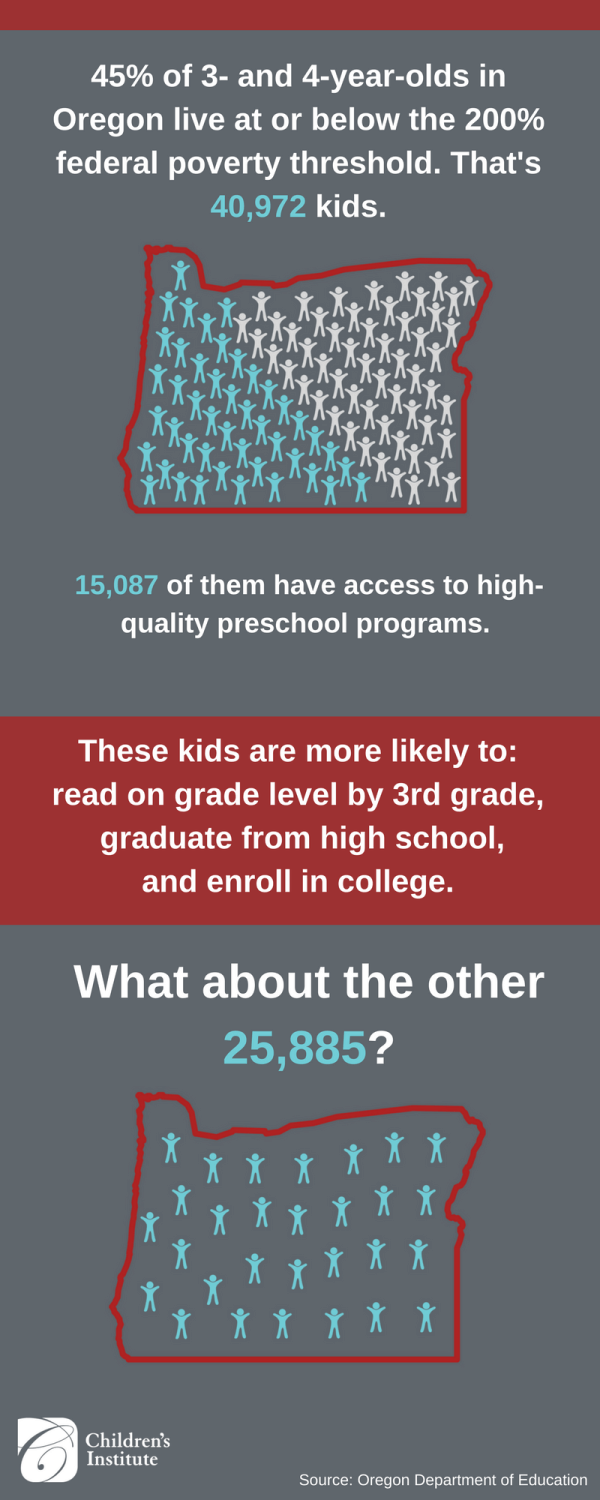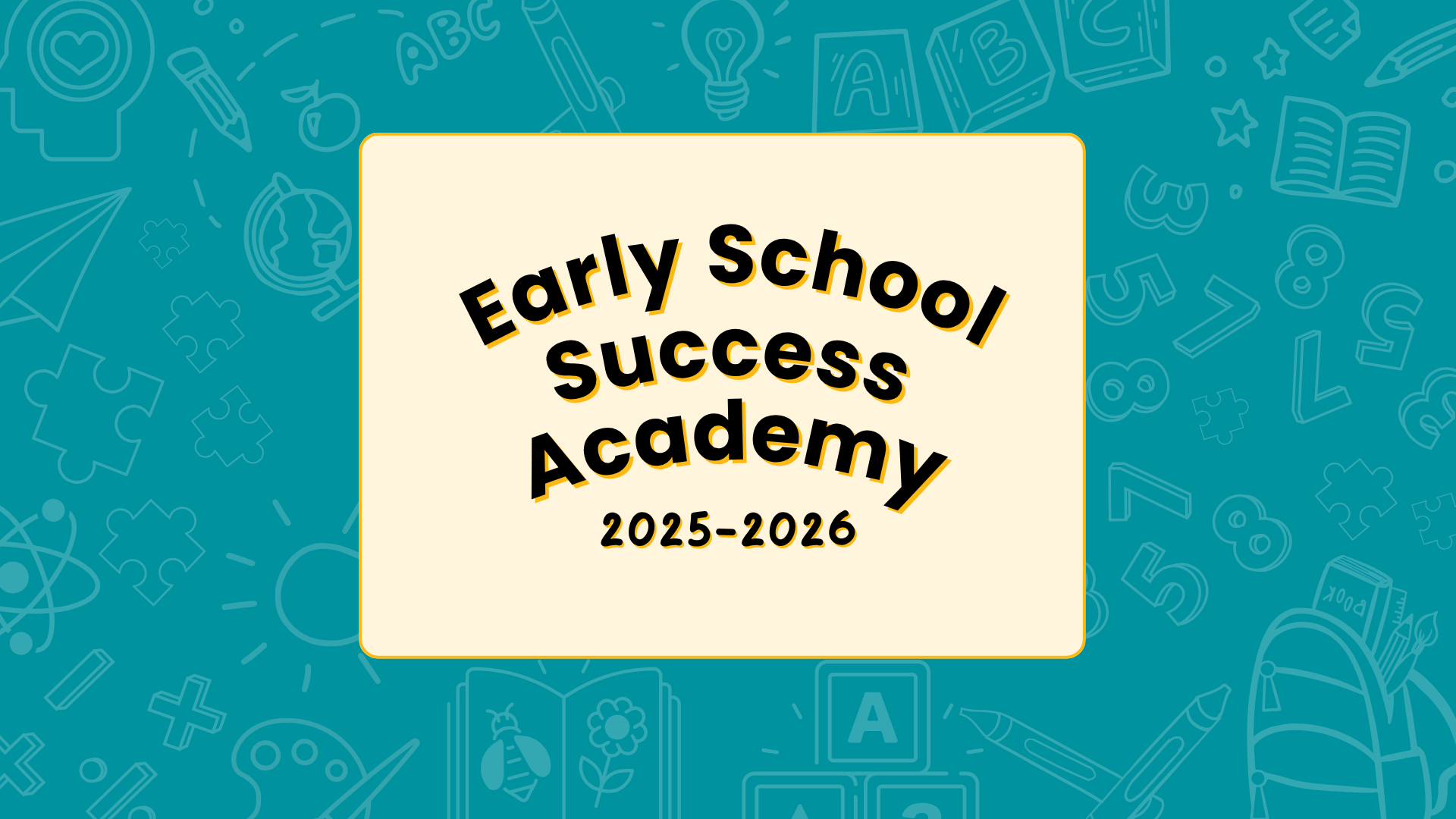The Status of Oregon Children & Families: 2017 County Data Book recently released by Children First for Oregon compiles data on how kids across the state are faring in health, education, and economic security. Here we highlight some key findings underscoring issues of access to high-quality early education for children in low-income or rural households and provide information and resources about early education programs currently serving Oregon’s children.

Oregon is Falling Behind
- 28 states and the District of Columbia outpaced Oregon in enrolling young children in school in 2013-2014.
- When Oregon’s 3- and 4-year-olds turn 5, they will have already spent less time in the classroom than the average young child in the U.S.
- Fewer than half of Oregon’s young children have attended early education programs over the last decade.
- 41 percent of Oregon’s young children who qualify for state preschool programs are not served.
Where You Live Matters
- Over 21,000 3- and 4-year-olds living in poverty in Oregon lack access to state-funded early education programs.
- In its first year, Preschool Promise served children in only 17 out of 36 counties in Oregon.
- Rural children are acutely affected by a lack of access to high-quality early education.
Programs Currently Operating in Oregon
- Head Start and Oregon Prekindergarten: This is free preschool program for 3- and 4-year-olds living at or below 100% of the federal poverty threshold. Students also receive nutritious meals, medical screenings, and home visits. Demand for the program currently exceeds the number of available spaces.
- Preschool Promise: This program, overseen by Early Learning Hubs around Oregon provides high-quality education to children living at or below 200% of the federal poverty threshold, and currently serves 1300 children. More information on the program is available in our Preschool Promise Brief.
- Reach Out and Read: In coordination with pediatricians and nurse practitioners, this program serves over 76,000 children across Oregon each year and distributes more than 140,000 books.
- SMART (Start Making a Reader Today): This program pairs almost 10,000 students in Oregon with a network of 5,000 reading volunteers who read one-on-one with children in grades preK-third, for one hour each week.
As we have previously discussed in this blog, improved access to early learning is a strategy for achieving equity. Our current early education programs, though, are leaving too many low-income children behind.

